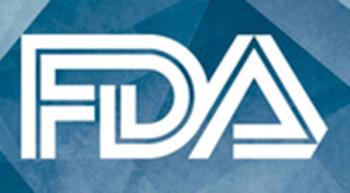
The FDA has granted priority review status to a breast cancer optical imaging agent, Lumisight.

The FDA has granted priority review status to a breast cancer optical imaging agent, Lumisight.

The FDA has approved avapritinib for the treatment of patients with indolent systemic mastocytosis.

The FDA has issued a complete response letter for vic-trastuzumab duocarmazine.

The FDA has granted epcoritamab accelerated approval for the treatment of patients with relapsed or refractory diffuse large B-cell lymphoma. The prescribing label comes with boxed warnings for cytokine release syndrome and neurologic problems.

Cemiplimab has received full approval for patients with metastatic basal cell carcinoma. The most common adverse events include fatigue, musculoskeletal pain, rash, diarrhea, and anemia.

The FDA has pushed back the PDUFA date for quizartinib for select patients with acute myeloid leukemia.

Trifluridine plus tipiracil, with or without bevacizumab, has been granted priority review status for the treatment of refractory, metastatic colorectal cancer.

Polatuzumab vedotin has been approved in combination with rituximab, cyclophosphamide, doxorubicin, and prednisone for previously untreated diffuse large B-cell lymphoma.

Omidubicel has been approved to quicken the recovery of neutrophils and reduce the risk of infection following stem cell transplant.

The FDA has accepted a biologics license application for a proposed trastuzumab biosimilar. The therapy is being considered as adjuvant therapy for certain HER2-overexpressing cancers.

A doublet regimen of enfortumab vedotin and pembrolizumab has received accelerated approval for cisplatin-ineligible patients with locally advanced or metastatic urothelial cancer.

The FDA has granted full approval to pembrolizumab (Keytruda) for certain adult and pediatric patients with advanced MSI-H or dMMR solid tumors.

Retifanlimab has received accelerated approved for patients with metastatic or recurrent, locally advanced merkel cell carcinoma.

FDA has approved the BRAF/MEK combination of dabrafenib plus trametinib for pediatric BRAF V600E–mutant low-grade glioma. The label comes with a warning for pyrexia.

The FDA’s Oncologic Drugs Advisory Committee voted 11 to 2 in support of the benefit-risk profile displayed by polatuzumab vedotin-piiq in patients with previously untreated large B-cell lymphoma, including diffuse large B-cell lymphoma not otherwise specified.

The approval of the Udenyca autoinjector offers easy-to-use design for delivery of the biosimilar pegfilgrastim-cbqv.

Abemaciclib, in combination with endocrine therapy, had been approved as an adjuvant treatment for patients with high-risk, hormone receptor–positive, HER2-negative, node-positive, early breast cancer.

The New Drug Application for nirogacestat has been granted priority review for the treatment of adult patients with desmoid tumors.

Elranatamab, an investigational BCMA/CD3-targeted bispecific antibody, has received priority review status for patients with relapsed or refractory multiple myeloma.

The FDA has granted avasopasem a priority review for severe oral mucositis in patients with head and neck cancer who are receiving radiotherapy.

In an 8 to 5 vote, ODAC voted in support of launching 2 single-arm trials seeking to characterize the risk-benefit profile of dostarlimab for patients with dMMR/MSI-H locally advanced rectal cancer.

Dostarlimab-gxly has been granted regular approval for the treatment of patients with dMMR endometrial cancer. The label comes with warnings for immune-mediated adverse effects.

The FDA has approved sacituzumab govitecan-hziy for patients with unresectable locally advanced or metastatic hormone receptor-positive, HER2-negative breast cancer.

The FDA has granted an accelerated approval to elacestrant (Orserdu) for the treatment of patients with estrogen receptor–positive, HER2-negative advanced or metastatic breast cancer following at least 1 prior lines of endocrine therapy.

Pirtobrutinib has been approved for patients with mantle cell lymphoma. The prescribing label comes with warnings for infections, hemorrhage, cytopenias, atrial fibrillation and flutter, second primary malignancies, and embryo-fetal toxicity.

Pembrolizumab has been approved by the FDA as an adjuvant treatment for patients with stage IB, II, or IIIA following resection and platinum-based chemotherapy.

The FDA has approved zanubrutinib for patients with chronic lymphocytic leukemia or small lymphocytic lymphoma. The prescribing label comes with warnings for hemorrhage, infections, cytopenias, second primary malignancies, and cardiac arrythmias.

The FDA has granted accelerated approval to tucatinib and trastuzumab for RAS wild-type, HER2-positive metastatic colorectal cancer. The prescribing information includes warnings for diarrhea and hepatotoxicity.

Mosunetuzumab is now an FDA approved treatment for patients with relapsed or refractory follicular lymphoma who have already undergone 2 or more lines or systemic therapy.

The FDA has approved updated labeling for capecitabine under Project Renewal, an Oncology Center of Excellence initiative aimed at updating labeling information for certain older oncology drugs.